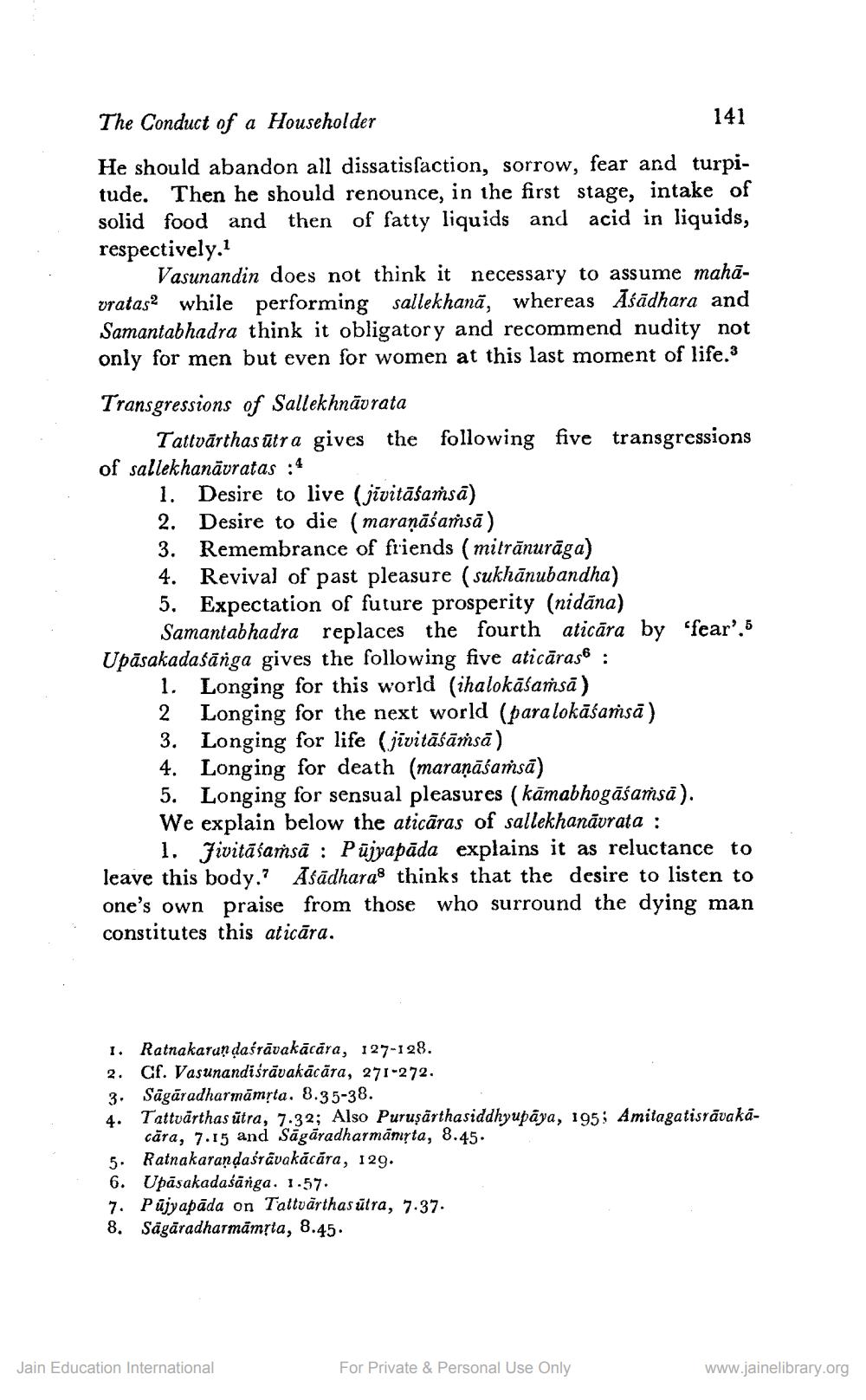________________
The Conduct of a Householder
He should abandon all dissatisfaction, sorrow, fear and turpitude. Then he should renounce, in the first stage, intake of solid food and then of fatty liquids and acid in liquids, respectively.1
Vasunandin does not think it necessary to assume mahāvratas2 while performing sallekhana, whereas Asadhara and Samantabhadra think it obligatory and recommend nudity not only for men but even for women at this last moment of life.3
Transgressions of Sallekhnavrata
Tattvärthasutra gives the following five transgressions of sallekhanävratas :4
1. Desire to live (jivitāśamsā)
2. Desire to die (maraṇāśaṁsā)
3. Remembrance of friends (mitrānurāga)
4. Revival of past pleasure (sukhānubandha) 5. Expectation of future prosperity (nidana) Samantabhadra replaces the fourth aticara by fear'.5
Upasakadaśānga gives the following five aticārasR :
1. Longing for this world (ihalokāśaṁsā)
2 Longing for the next world (paralokāśaṁsā) 3. Longing for life (jivitāśāṁsā)
4. Longing for death (maraṇāśaṁsā)
5. Longing for sensual pleasures (kāmabhogāśaṁsā). We explain below the aticaras of sallekhanavrata :
1. Jivitāśamsa: Pujyapāda explains it as reluctance to leave this body." Asadhara thinks that the desire to listen to one's own praise from those who surround the dying man constitutes this aticăra.
1. Ratnakaranḍaśrāvakācāra, 127-128.
Cf. Vasunandiśravakācāra, 271-272.
141
2.
3. Sägaradharmāmṛta. 8.35-38.
4. Tattvärthasutra, 7.32; Also Puruṣārthasiddhyupāya, 195; Amitagatisrāvakācara, 7.15 and Sagaradharmamṛta, 8.45.
5. Ratnakaranḍaśravakācāra, 129.
6. Upāsakadaśānga. 1.57.
7. Pujyapada on Tattvärthasutra, 7.37.
8. Sägäradharmāmṛta, 8.45.
Jain Education International
For Private & Personal Use Only
www.jainelibrary.org




